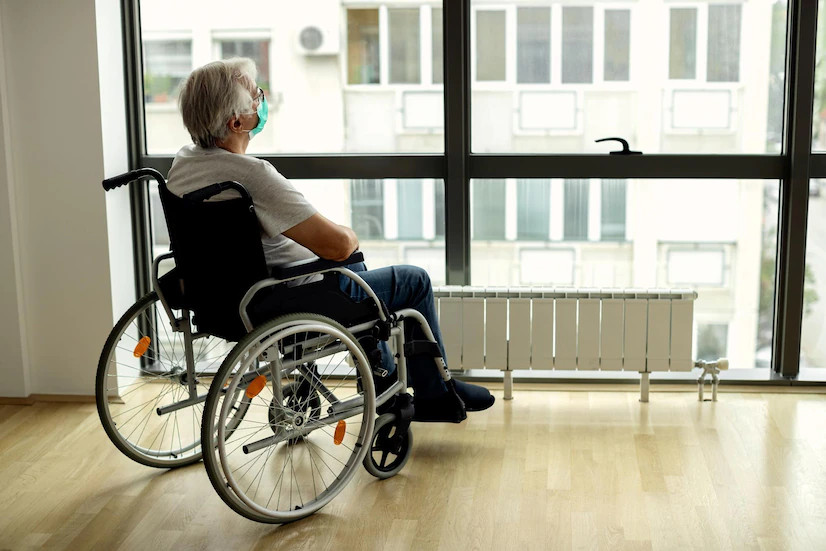You might have heard stories of victims of relationship violence who find it difficult to break away from their abusers. It's not easy to break away in these situations. If you have experienced it, this condition is known as trauma bonding.
What is trauma bonding?
Trauma bonding, according to Verywell Health, is when a person becomes emotionally, physically, or sexually attached to their partner and finds it difficult to leave them, even after they have suffered abuse of any kind. Not only can trauma bonding happen in romantic relationships, but it can also happen to children who have witnessed violence.
Trauma bonding is actually the result of a misunderstanding of what constitutes a healthy relationship, despite the fact that it is frequently seen as an act of masochism or deliberate abuse.
Read more: Tanda Toxic Relationship, Ini Bahaya Gaslighting dalam Jangka Panjang
Signs of trauma bonding
Trauma bonding can occur when a person continues to bond with their abuser. Victims begin to feel sympathy or even affection for someone who has hurt them and may also start to "normalize" the abuser's actions.
Signs of bonding trauma can sometimes be difficult to recognize and understand. However, some signs that can be used to identify this situation include:
A cycle that keeps repeating itself
Take a closer look at your relationship. Have you experienced physical, verbal, or sexual abuse from your partner more than once? What did your partner do next? Is your partner not violent anymore?
Normally, you would find it easier to escape an unhealthy or abusive relationship. But with trauma bonding, this is difficult. Usually, this is due to your belief that your partner will improve their behavior on their own.
In unhealthy relationships, abusers may promise that they will change. After your partner abuses you, they will then treat you well, such as by complimenting you, bringing you gifts, and showering you with attention (love bombing), which will make it harder for you to break away.
This cycle can continue and repeat itself, making it difficult for the victim to break away from the unhealthy relationship. It is especially true if the victim is accustomed to being treated poorly that attitudes that convey remorse can make them feel appreciative.
Read more: Cara Menghadapi Pasangan yang Melakukan Gaslighting
Power imbalance
Power imbalance in relationships is characterized by allowing your partner to control you so completely that you feel helpless, unable to resist, defend, and escape.
Even if you manage to leave the relationship, you may have difficulty breaking the bond without professional help. You may find it difficult to live without them and end up choosing to go back. This can happen because the cycle of violence is so familiar that you don't know how to live without it.
Other notable signs
In addition to the two signs above, some signs that can indicate you are in a bonding trauma relationship include:
-
- You feel unhappy and may no longer love your partner but still choose to stay and find it difficult to end the relationship
- When you try to end the relationship and leave, you end up feeling physically and emotionally distressed
- You dwell on the beautiful moments you've shared together and take them as proof that your partner loves you
- You suppress bad memories of your partner's violence against you
- You try to shield your abuser; for example, you are prepared to offer justifications and defend their actions when others bring up concerns
- You continue to trust your abuser and hope to be able to change them
Trauma bonding can be long-lasting, even when the abuse happened a long time ago. You might find it difficult to let go of the partner who has hurt you, which makes you hesitant to let someone else into your heart.
It is advisable to speak with your partner or a psychologist first if you believe that you are going through bonding trauma. Never forget that you are not to blame for relationship violence, regardless of what occurs.
If you need medical advice or consultation, you can either visit a doctor or make use of the consultation features that are available in the Ai Care application by downloading the Ai Care application from the App Store or Play Store.
Looking for more tips and information about health conditions, first aid, and home remedies? Click here!
- Sean Edbert Lim, MBBS
Zoppi, L. (2023). What is trauma bonding?. Available from: https://www.medicalnewstoday.com/articles/trauma-bonding
Porrey, M. (2023). How to Tell if You’re in a Trauma-Binding Relationship. Available from: https://www.verywellhealth.com/trauma-bonding-5210779
Raypole, C., Rush, T. (2023). How to Recognize and Break Traumatic Bonds. Available from: https://www.healthline.com/health/mental-health/trauma-bonding#signs











